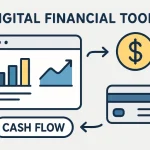The scooter rental market in Thailand has reached a turning point. Nearly every traveler who steps off a plane in Bangkok quickly realizes that the most efficient way to move through the city is on two wheels. For decades, the entire industry has been shaped around small street-side shops, handwritten contracts, photocopied passports, and trust-based verbal agreements. That method worked when tourism was slower, booking behavior was simpler, and customer expectations were low.
But the entire landscape has shifted. Travelers are younger, more digital, more impatient, more safety-conscious, and much more demanding when it comes to speed, transparency, and online experience. At the same time, Thai cities have exploded in population density, and competition between rental shops has become aggressive. The average tourist now compares ten options online before they even land in the country.
This evolution creates a massive opportunity: a complete technological transformation of how scooters are rented, monitored, secured, priced, and managed.
Right now, the only companies truly pushing innovation are early digital-first operators such as Rentlab motorbike rental in Bangkok. Their model shows what the next decade of this industry will look like: self-service booking, automated verification, no hidden fees, online deposits, app-based management, plug-and-play rental lockers, digital contracts, and a full performance-tracking infrastructure.
Once technology finally takes over this industry, there will be a very clear split between who survives and who disappears. The businesses that continue relying on outdated manual processes will lose customers, lose ranking, lose trust, and eventually lose profitability. The businesses that invest in automation will dominate because the market itself is migrating toward convenience and digital transparency.
The transformation begins: From local shops to digital ecosystems
If someone visited Bangkok ten years ago and walked along the streets of Sukhumvit, they would see the same pattern almost everywhere: a row of scooters parked on the sidewalk, a small metal box with keys hanging inside, a handwritten sign with daily rates, and a local owner sitting in a plastic chair waiting for walk-ins.
That model was unstoppable because Thailand was a global tourist magnet. People arrived without research, walked around, found a scooter, signed a paper, and left. Competition was simple. Prices were based on location. Reputation was based on word of mouth. Maintenance was handled manually. Cash was king.
Today everything is different.
Tourists no longer arrive without research. They compare online prices, check Google Reviews, evaluate service quality, look for modern websites, and avoid any business that feels outdated or risky. They want transparent daily and monthly rates, professional contracts, and instant digital confirmation. They want the same experience they get from renting a car in Europe or booking a hotel room in Japan.
This expectation gap is what technology fills. And once customers experience a completely digital system, they will never go back to old-style shops again.
Why the scooter rental industry in Thailand is the perfect target for technological disruption
The scooter rental space has all the classic ingredients for massive tech disruption:
- High demand and high turnover.
Bangkok alone handles millions of scooter rentals every year. Thailand’s tourism is strong, predictable, and constantly replenished. - Fragmented competition.
Most operators are small family businesses with low technical skills and no digital infrastructure. They cannot adapt fast. - Low standardization.
Contracts, insurance rules, identity verification, maintenance schedules, and pricing models vary wildly from shop to shop. - Customer pain points everywhere.
Renters deal with unclear deposits, hidden fees, poor maintenance, unreliable scooters, and unprofessional service. - Full dependence on manual labor.
Everything from booking to contract management to bike handover requires physical presence. - No data economy.
Almost no shop collects or uses data for fleet management, customer profiling, marketing, or optimization.
Industries with these characteristics always undergo technological disruption because the impact is exponential. One operator introducing automation can outperform ten operators who are stuck in the old system.
The question isn’t whether technology will transform this industry. The question is how fast—and who will lead the shift.
Breaking down the key technologies that will reshape scooter rentals in Thailand
To understand the future, we must look at the technologies entering the space. None of them is science fiction. They exist today, but Thailand’s rental market is behind in adoption. Businesses that start using these technologies now gain a five-year advantage.
1. Automated digital identity verification (KYC + Liveness + OCR)
Customers want speed. Shops want safety. Technology solves both.
Modern digital verification uses:
• Facial recognition
• AI-driven document scanning
• Liveness detection
• License validation
• Tamper-proof verification logs
This replaces photocopying passports, taking photos on old phones, or holding a customer’s passport hostage. It eliminates risk and boosts trust instantly.
In the future, customers will simply scan their face and license through a website or app, and the system will verify them in seconds.
2. Real-time fleet tracking and geo-fencing
With GPS technology, every scooter becomes a smart scooter.
Real-time tracking allows:
• Monitoring location and route
• Identifying dangerous driving patterns
• Detecting if a scooter leaves designated areas
• Recovering stolen vehicles
• Analyzing fleet performance and usage trends
• Preventing misuse through automated alerts
The old model of “trust the customer and hope” will disappear.
3. Digital contracts and automated damage reporting
Paper contracts are outdated, slow, and easy to lose. A digital contract system allows:
• Instant PDF contracts
• Timestamped signatures
• Automatic storage
• Damage comparison before and after rental
• High-resolution photo and video documentation
• Protection during disputes
Technology can completely remove arguments about scratches, dents, and responsibility. Transparency wins trust.
4. Online booking paired with instant payment
This is where Thailand is still behind. Many shops don’t even have websites. Those that do often rely on Facebook messages or WhatsApp.
Modern rentals will operate like this:
- Customer selects dates.
- System checks availability automatically.
- Payment is made instantly.
- Verification is completed online.
- The scooter is unlocked at self-pickup locker or delivered.
Zero chat. Zero waiting. Zero confusion.
The speed of this model will crush traditional shops.
5. Smart self-pickup lockers
This is the next revolution in the motorbike rent in Bangkok space.
Imagine a digital locker system:
• Customer books online.
• Locker gives them a pickup code.
• They arrive, scan the code.
• Locker opens with key inside.
• Scooter is already reserved and ready.
This creates 24/7 automatic rentals without needing employees present.
As tourism increases and customers arrive at all hours, this system becomes unbeatable.
6. Predictive maintenance using data analytics
Right now, shops wait until something breaks. That is expensive and dangerous.
With technology, maintenance becomes proactive:
• Belt changes are predicted
• Oil change cycles are automated
• Battery health is monitored
• Tire pressure sensors notify issues
• Driving behavior predicts future damage
The system tells the owner what to fix before the customer notices a problem.
This makes fleets safer, cheaper to maintain, and more profitable long-term.
7. Dynamic pricing powered by demand algorithms
Hotels use dynamic pricing. Airlines use dynamic pricing. Car rentals use dynamic pricing.
Scooter rentals in Thailand still use fixed prices taped on a plastic chair.
Technology brings:
• Seasonal adjustments
• Hour-based peak pricing
• Weekend vs. weekday pricing
• Long-term discounts
• Real-time price optimization
• Automated promo codes
This increases revenue without increasing fleet size.
8. App-based rental control center
The future operator doesn’t sit on a plastic chair. They manage everything from an app:
• How many scooters available today
• Which bikes need service
• Which customers must return today
• Payment history
• Traffic to website
• Notifications of damages
• Instant customer support
This removes unnecessary labor and increases efficiency dramatically.
How the customer experience will evolve in Thailand
Tourists, expats, and locals will all experience a revolution in how they rent scooters.
Step 1: Instant booking
Instead of walking shop to shop, customers will:
• Visit website
• Compare scooters visually
• Select dates
• Pay in under one minute
Convenience wins.
Step 2: Fast verification
Customers upload their license and passport once. Technology verifies the user automatically. No more wasting time with physical checks.
Step 3: Self-pickup
Customers love independence. They get a locker code or automatically assigned delivery without speaking to anyone if they prefer.
Step 4: Transparent contract
Everything digital, timestamped, and stored.
Step 5: Automatic return and deposit release
No arguments, no waiting, no stress. Technology ends misunderstandings permanently.
Why operators who refuse to adopt technology will lose the market
Let’s be brutally realistic. The technology shift is not optional.
The old shops will lose because:
• Younger travelers don’t trust outdated businesses
• Reviews punish poor organization
• Google ranking rewards modern businesses
• Tourists prefer online confirmation
• Manual booking wastes time
• Bad maintenance causes bad reviews
• Cash-only shops look suspicious
• Modern competitors will undercut them with automation
• Insurance companies will demand stricter verification
• Smart lockers allow 24/7 rentals
• Price transparency destroys shady rental tactics
The biggest advantage digital operators have is simple:
They scale.
Traditional shops don’t.
A digital rental company with 10 scooters can operate smoother than a traditional shop with 50.
The market always rewards efficiency.
Thailand’s tourism growth makes technology even more critical
Tourism is back and rising:
• 40 million visitors projected in coming years
• Younger travelers dominate
• Expats stay long-term
• Remote workers flood Bangkok and Phuket
• Delivery riders expand market demand
• Digital payment adoption is exploding
All these groups expect modern service.
Thailand is becoming a digital-first economy. QR payments, app-based services, food delivery, e-commerce, and online booking dominate daily life. The scooter rental industry cannot escape this evolution.
The operators who embrace technology now will capture the next decade of growth.
The turning point: motorbike rent in Bangkok becomes a tech-driven service
Bangkok is the perfect testing ground for high-tech scooter rental systems:
• Dense population
• Heavy tourism
• Modern infrastructure
• Digital-native consumers
• High smartphone penetration
• Strong delivery rider market
• Existing familiarity with Grab, Foodpanda, and Bolt
• Popularity of app-based solutions
The demand is there. The technology is ready. The market is underserved.
This is the beginning of a new era where renting a scooter will feel like unlocking an electric scooter in Europe—simple, digital, instant, and safe.
The foundation of a modern motorbike rent in Bangkok service does not stop at digital booking or smart lockers. These elements are only the visible tip of a much deeper technological ecosystem. The real transformation happens underneath the surface, where automation, predictive systems, AI-driven analytics, and integrated logistics networks start replacing everything that used to be manual. This part explores the internal machinery of the future scooter rental company and why the next generation of operators will achieve higher profit margins, better customer retention, and a dominant market position.
The internal digital ecosystem behind next-generation scooter rentals
A true digital-first scooter rental company operates similarly to a miniature tech startup. It builds multiple systems that work as one unified organism:
• Website and booking engine
• Online payment gateway
• Automated verification
• Digital contract & data storage
• Fleet management software
• Predictive maintenance algorithm
• Staff dashboard and permissions
• GPS tracking + geo-fencing
• Insurance integration
• AI risk scoring
• Marketing automation
• Real-time customer support tools
Traditional shops run all these functions manually with paper, photos, chats, guesswork, or personal judgment. Technology replaces this with clean, measurable, standardized processes that reduce errors and increase profits.
To understand how powerful this is, we need to look at each core pillar.
AI-driven fleet optimization: the future of profitable scooter rentals
The heart of a profitable motorbike rent in Bangkok operation is fleet optimization. Most local shops treat scooters individually. They do not measure:
• Daily rotation
• Monthly performance
• User risk profiles
• Maintenance cycles
• Accident probability
• Peak vs. low-season patterns
• Model-specific demand
• Real ROI per bike
Technology changes this.
AI-powered fleet optimization tracks each scooter as a living data unit. It accumulates real-world information and converts it into decisions. For example:
1. Predicting which scooter will break down next
AI uses:
• Mileage
• Driving behavior
• Engine temperature
• Traffic density
• Brake pressure
• Acceleration patterns
• Tire wear history
From this data, the system calculates the probability of failure. The maintenance team is notified before anything happens. This prevents negative reviews, unhappy customers, and expensive repairs.
2. Predicting which scooters bring the highest ROI
Demand is not equal for all models.
Data can reveal:
• Qbix is rented more weekly
• Aerox gets more daily rentals
• Nmax attracts long-term expats
• Scoopy is preferred by tourists
• Certain colors rent more because of Instagram photos
This allows operators to buy the right bikes rather than guessing like traditional shops do.
3. Detecting risky renters using behavioral analysis
AI-driven risk scoring uses:
• Driving patterns after rental
• Past rental history
• Verification data
• Payment patterns
• Complaint logs
• Previous damages
• Geo-boundary violations
High-risk users get higher deposits or restricted models. Low-risk users get fast approval and premium options.
This system protects profits while improving customer experience.
4. Optimizing pricing in real time
Instead of fixed prices, AI adjusts rates based on:
• Season
• Weather
• Big events
• Flight arrival patterns
• Local holidays
• Demand
• Competition trends
This mechanism alone can increase revenue by 10–30% without extra effort.
Traditional shops cannot compete with this because they lack data and automation.
How self-service systems reshape customer expectations
Technology changes not only how businesses operate but also how customers behave. Once customers get used to fast, self-driven rental flows, they will never accept outdated methods again.
Consider how other industries changed:
• Hotels shifted from walk-in to booking.com
• Food shifted from street stalls to GrabFood
• Taxi service shifted from shouting on the street to Grab/Bolt
• Retail shifted from markets to Shopee/Lazada
• Banking shifted from teller desks to mobile apps
Scooter rentals will follow the same pattern.
Thailand’s next generation of renters will expect:
• Online booking
• Instant approval
• No passport holding
• Clear pricing
• Digital contract
• 24/7 pickup
• No waiting
• GPS-secured scooters
• Online support
Once this becomes the standard, any shop without it becomes invisible.
How automated delivery networks will redefine convenience
One of the most powerful future technologies for scooter rentals is automated delivery orchestration.
Most shops currently do delivery manually:
• A staff member rides the scooter
• They take taxi back
• It takes 1–2 hours
• It disrupts the whole day’s workflow
Technology replaces this with smart planning.
Imagine:
• A map interface showing all deliveries
• System assigns the closest available driver
• Automated route optimization
• Push notifications for customers
• Real-time updates of delivery ETA
• Smart scheduling around peak hours
This system makes delivery not only faster but also significantly cheaper.
With technology, a shop with five scooters can operate like a company with fifty.
The rise of subscription and membership models
Traditional shops rely almost entirely on daily rentals. This creates unstable revenue. Technology enables new models:
1. Weekly and monthly plans
Expats, remote workers, and long-term visitors prefer predictable monthly prices.
Technology automates:
• Billing
• Renewals
• Maintenance alerts
• Payment reminders
• Lock-tracking
2. Credit-based rental systems
Users deposit credit and rent multiple times without re-verifying.
3. Membership tiers
For example:
• Gold members get priority pickup
• Silver members get cheaper long-term rates
• Platinum members get accident forgiveness
This creates recurring profit that traditional shops cannot achieve.
How technology eliminates the biggest problems renters face in Thailand
Ask any tourist what they fear about renting a scooter in Thailand. The answers are consistent:
• Shops keeping passports
• Hidden fees
• Poorly maintained scooters
• Accusations of damages
• Confusing contracts
• No transparency
• Language barriers
• No support after accidents
Digital systems kill all these problems instantly.
1. No more passport hostage system
Digital ID = safe verification + trust.
2. No more hidden fees
Automated invoices show every detail before booking.
3. No more maintenance surprises
Smart diagnostics track scooter health.
4. No more contract confusion
Digital contracts are clear and stored automatically.
5. No more damage disputes
Before/after photos stored in the system remove arguments.
Customers love clarity, and technology gives it to them.
Why Thailand is the perfect environment for tech-monopolized scooter rentals
In some countries, competition is strong and infrastructure is fully digital. In Thailand, the opposite is true.
1. Extremely fragmented market
Thousands of micro-shops with little digital capability.
2. High tourist turnover
Tourists do not develop loyalty to old-style shops.
3. Rapid digital adoption
Thai society already uses QR payments, app deliveries, and mobile wallets.
4. Weak standardization
Tech-driven operators can basically define the new standard.
5. Strong demand for motorbike rent in Bangkok
Bangkok is crowded, fast-moving, and built for scooters. Growth is inevitable.
Combine all of this, and the market is ready for a dominant digital player.
Why early adopters will dominate for the next decade
If you map the technological transformation timeline in similar industries, the pattern is always the same:
Phase 1: Early adopters appear
Small companies start using advanced technology to experiment and gain market share.
Phase 2: Customer expectations change
Customers begin to prefer modern services.
Phase 3: Market pressure increases
Traditional shops start losing customers because they cannot keep up.
Phase 4: Digital operators scale
Thanks to automation, they grow their fleet faster with fewer employees.
Phase 5: Late adopters fail
Shops that fail to adapt either close or get acquired.
Phase 6: Market consolidates around a few strong brands
Digital-first rental companies dominate the industry.
Thailand is currently moving from Phase 1 to Phase 2.
This means that operators who invest in systems today will control the market in 2–4 years.
The rise of fully automated smart rental stations
One of the biggest upcoming changes is the introduction of fully automated smart stations around Bangkok.
Imagine walking near BTS On Nut or Nana and seeing:
• A modern locker hub
• A digital screen
• QR booking
• 24/7 scooter pickup
• Fully verified users
• No staff required
This will be the future of motorbike rent in Bangkok.
Shops that depend on staff availability will become outdated. Automated stations will appear at:
• MRT stations
• Malls
• Hotels
• Tourist streets
• Apartment complexes
• Airports (eventually)
The operator who builds this network first will become the market leader for the next decade.
The impact of government & legal modernization
Thailand is also modernizing regulations for:
• Digital identity
• Insurance
• Tourism safety
• Vehicle registration
• Driving license verification
• Visitor monitoring
As government systems become digital, so will the scooter rental industry. Online license validation will become mandatory. Digital contracts will be standardized. GPS security may become a legal requirement.
Operators who build their tech infrastructure now will be ready when these regulations appear.
Why manual shops will fail to compete
Manual shops lose in:
• Speed
• Accuracy
• Transparency
• Scalability
• Customer trust
• Review ratings
• Operational cost
• Security
• Professionalism
They operate with:
• Paper contracts
• Cash only
• No digital presence
• Poor tracking
• Maintenance done only when broken
• Passport holding
• Confusing pricing
• Weak online reputation
Technology amplifies every weakness.
In a digital world, the businesses that survive are the ones that adapt, automate, and optimize.
Why customers of the future will choose digital-only scooter rentals
The new generation of renters is changing dramatically.
They want:
• Convenience
• Modern interface
• Fast booking
• Safety
• Honesty
• Transparent pricing
• Verified reviews
• Professional service
• Digital communication
They do not want:
• Passport taken
• Handwritten contracts
• Unclear damages
• Old scooters
• Poor English communication
• Slow responses
• Confusion about prices
• No receipts
• Chaotic booking process
Once customers experience digital rentals, they will consider old shops risky.
The “Uber moment” for scooter rentals
Every industry hits a point when a company brings so much innovation that all competitors must follow or disappear.
• Taxis had Uber
• Hotels had Airbnb
• Delivery drivers had Foodpanda
• Movies had Netflix
• Retail had Amazon
Scooter rentals in Thailand have not had their Uber moment yet. But they are extremely close.
The industry is ripe for one major digital operator to set new standards and redefine everything.
The future of the scooter rental industry in Thailand is not a mystery. It is not vague, speculative, or uncertain. The direction is clear, the patterns match every other disrupted industry, and the technology required already exists. What we are witnessing now is the early stage of a massive transformation where digital operators will replace traditional shops, data will replace guesswork, automation will replace manual labor, and trust will replace risk.
This final section outlines the long-term blueprint for the industry and demonstrates how technology will reshape the entire market structure, customer behavior, and business models across Thailand.
How Thailand’s scooter rental industry will look in the year 2030
In just a few years, the industry will be unrecognizable. By 2030, the typical motorbike rent in Bangkok experience will include:
1. Fully online booking journeys
Customers will book, pay, and verify themselves on a website or mobile app without speaking to anyone.
2. Digital, legally binding contracts
No more paper, no more misunderstandings, no more arguments. Everything is timestamped, stored, and easy to reference.
3. Automated key handover
Smart lockers and app-based unlock systems will dominate. Late-night arrivals, early flights, and irregular schedules will no longer depend on staff availability.
4. Connected scooters
GPS, real-time diagnostics, engine sensors, and maintenance alerts will be standard. Operators will know more about their scooters than car rentals knew about their fleets 10 years ago.
5. Dynamic pricing
Rates will adjust automatically based on demand, season, and time of day.
6. AI-driven customer support
Instead of long chat threads, customers will receive automated, instant responses to 90% of questions.
7. Zero deposit models using digital insurance
Technology allows operators to remove the friction of deposits while still lowering risk through dynamic insurance and risk scoring.
8. Nationwide brand networks
Operators will expand across Bangkok, Phuket, Pattaya, Chiang Mai, Koh Samui, and eventually international hubs.
9. Fleet expansion without hiring more staff
Automation and predictive systems will allow a company with 200 scooters to operate more efficiently than a traditional shop with 40.
10. No more anonymous walk-in shops
Google Maps, customer reviews, and digital contracts will eliminate unprofessional operators.
The scooter rental experience will feel as simple and smooth as unlocking an electric scooter in a European city—only with larger, more powerful bikes.
The blueprint for a fully automated, data-driven rental company
To become the dominant operator in Thailand, a scooter rental company must assemble a complete technological infrastructure. The blueprint includes:
A. Digital verification and onboarding
• Face recognition
• License scanning
• Passport OCR
• Fraud detection
• Liveness detection
This eliminates the outdated passport-holding method and massively increases customer trust.
B. Online booking engine
A modern rental platform must offer:
• Real-time availability
• Calendar-based pricing
• Secure payment gateway
• Reservation confirmation
• Automated emails and SMS
Traditional shops lose customers because they cannot match this speed.
C. Self-handover lockers
Smart stations reduce employee load by 80%. They also unlock 24/7 rental potential, which becomes a major advantage in tourist areas.
D. GPS-based fleet tracking
Each scooter sends data to the central system:
• Location
• Maximum speed
• Hard braking
• Over-acceleration
• Time spent in restricted areas
This removes uncertainty about misuse, safety, and theft.
E. Predictive maintenance engine
A data-driven approach extends the life of a scooter by 20–40%. Predictive maintenance lowers costs and improves rider safety.
F. AI-managed customer service
Chatbots integrated with booking data can answer:
• Pricing
• Location
• Policy questions
• Contract information
• Scooter availability
Staff involvement is only required for complex situations.
G. Performance analytics dashboard
Owners can see:
• Profit per bike
• Damage frequency
• Popular pickup times
• Seasonal demand
• Preferred models
• Customer lifetime value
This dashboard is the “brain” of the business.
Building a nationwide scooter rental network powered by automation
One of the biggest advantages of a fully digital business model is scalability. Traditional rental shops are limited by:
• Staff availability
• Paperwork
• Physical stores
• Manual bike handover
• Unpredictable demand
Digital operators remove all of these constraints.
Step 1: Build digital foundation in Bangkok
Bangkok is the ideal environment for testing and improving technology due to high demand and dense traffic.
Step 2: Add additional smart stations
Operators can place lockers at:
• BTS stations
• MRT stations
• Malls
• Hotels
• Condo complexes
• University zones
Each station becomes a micro-branch.
Step 3: Expand to other cities
The next logical rollouts:
• Pattaya
• Phuket
• Chiang Mai
• Koh Samui
• Krabi
• Hua Hin
A single digital dashboard can manage multiple cities with minimal staff.
Step 4: Franchise expansion
With a strong brand and proven system, Thailand will naturally attract franchise partners from:
• Hotels
• Hostels
• Tourism companies
• Real estate firms
• Local entrepreneurs
Technology makes franchising easy because everything is automated and standardized.
Step 5: International expansion
Once operations are perfected in Thailand, the same system can be replicated in:
• Vietnam
• Indonesia
• Philippines
• Malaysia
The entire ASEAN region has the same transportation culture and demand patterns.
The company that builds this infrastructure first becomes the dominant brand in Southeast Asia.
Why AI will create safer roads and better customer experiences
AI is not only about efficiency and pricing. It also improves safety and customer experience.
AI will analyze driving patterns
Hard braking, rapid acceleration, high speeds, and aggressive riding are detectable through sensors. If a customer rides dangerously, the system can:
• Warn them
• Increase their deposit for next rental
• Limit scooter power (future models)
• Recommend safety tips
• Notify support team
AI will prevent accidents before they happen
Predictive engine monitoring can identify:
• Low tire pressure
• Weak brakes
• Overheated belt
• Poor battery voltage
• High vibration patterns
This allows maintenance before any incident occurs.
AI will personalize recommendations
For example:
• Short-term tourists get simple, easy scooters
• Long-term expats receive monthly options
• Riders with license history get premium models
• Lower-risk riders get deposit-free offers
The entire rental experience becomes more tailored.
AI will detect fraud
Fake passports, stolen IDs, and tampered documents will be rejected automatically.
This protects both the company and genuine customers.
The economics behind a digital-first scooter rental company
Once technology replaces human labor, profit margins change dramatically.
Traditional shop economics
• High labor cost
• Inefficient maintenance
• Lost revenue from downtime
• Manual mistakes
• Paper contract disputes
• Price undercutting from competitors
• High replacement cost from misuse
Profit margin: unpredictable and low.
Digital-first company economics
• 24/7 availability
• Fully automated booking
• Predictive maintenance
• Lower labor cost
• Fewer disputes
• Higher customer satisfaction
• Faster fleet turnover
• Better pricing strategy
Profit margin: stable and scalable.
Technology allows an operator to earn more from the same scooter because every step in the rental life cycle is optimized.
How digital transparency builds trust and long-term loyalty
One of the biggest weaknesses in Thailand’s scooter rental industry is trust. Many tourists experience:
• Confusing deposits
• Sudden charges
• Poor communication
• Low-quality scooters
• Bad contracts
• Accusations of damage they didn’t cause
Technology eliminates all these problems.
Transparent contracts
Everything is clearly visible before booking.
Automated before/after damage logs
Photos and video evidence prevent conflicts.
Standardized pricing
Customers know exactly what they are paying for.
Digital receipts
Everything is tracked and recorded.
GPS verification
No more false accusations or misunderstandings.
A digital-first operator becomes trustworthy in a way traditional shops can never achieve.
Why scalability is the ultimate advantage of modern scooter rental businesses
Traditional shops are limited by physical presence. They can only manage what they can see. A modern operation can manage entire districts from a single dashboard.
This creates exponential growth opportunities.
For example:
A traditional shop with 50 scooters might need:
• 6–10 employees
• Full-time manager
• Constant in-person supervision
A digital-first company with 200 scooters might need:
• 3–5 employees
• Remote monitoring
• Automated customer service
• Predictive maintenance
This operational efficiency is the difference between a small business and a multi-million-valuation company.
The inevitable extinction of outdated scooter rental shops
Technology does not “maybe” transform industries. It always does. The operators who ignore this shift will face:
• Decreasing demand
• Poor reviews
• Low trust
• Loss of long-term customers
• Rising maintenance costs
• Weak online presence
• Inability to compete with automation
• Conflicts with tourists
• Lower reputation with expats
• Stagnation and eventual closure
This pattern has repeated itself globally across every industry.
Bangkok’s rental market will be no different.
Conclusion: A new era for motorbike rent in Bangkok and across Thailand
Thailand is on the edge of a major technological revolution in the scooter rental industry. Digital-first operators like Rentlab represent the future standard—automated, transparent, scalable, and safe. The old system of walk-in shops, handwritten contracts, passport holding, random pricing, and unmaintained scooters will slowly fade away.
In its place will rise a modern ecosystem powered by:
• Smart verification
• Online booking
• Digital contracts
• Real-time tracking
• Predictive maintenance
• Self-service pickup
• AI-based risk scoring
• Automated customer support
• Dynamic pricing
• Scalable operations
This is not a trend. It is the future structure of the industry.
The companies that adopt these tools early will dominate Thailand’s market for the next decade. Those that resist change will disappear as customers choose safer, faster, and more professional solutions.
Technology is not just improving the scooter rental business. It is redefining it forever.







